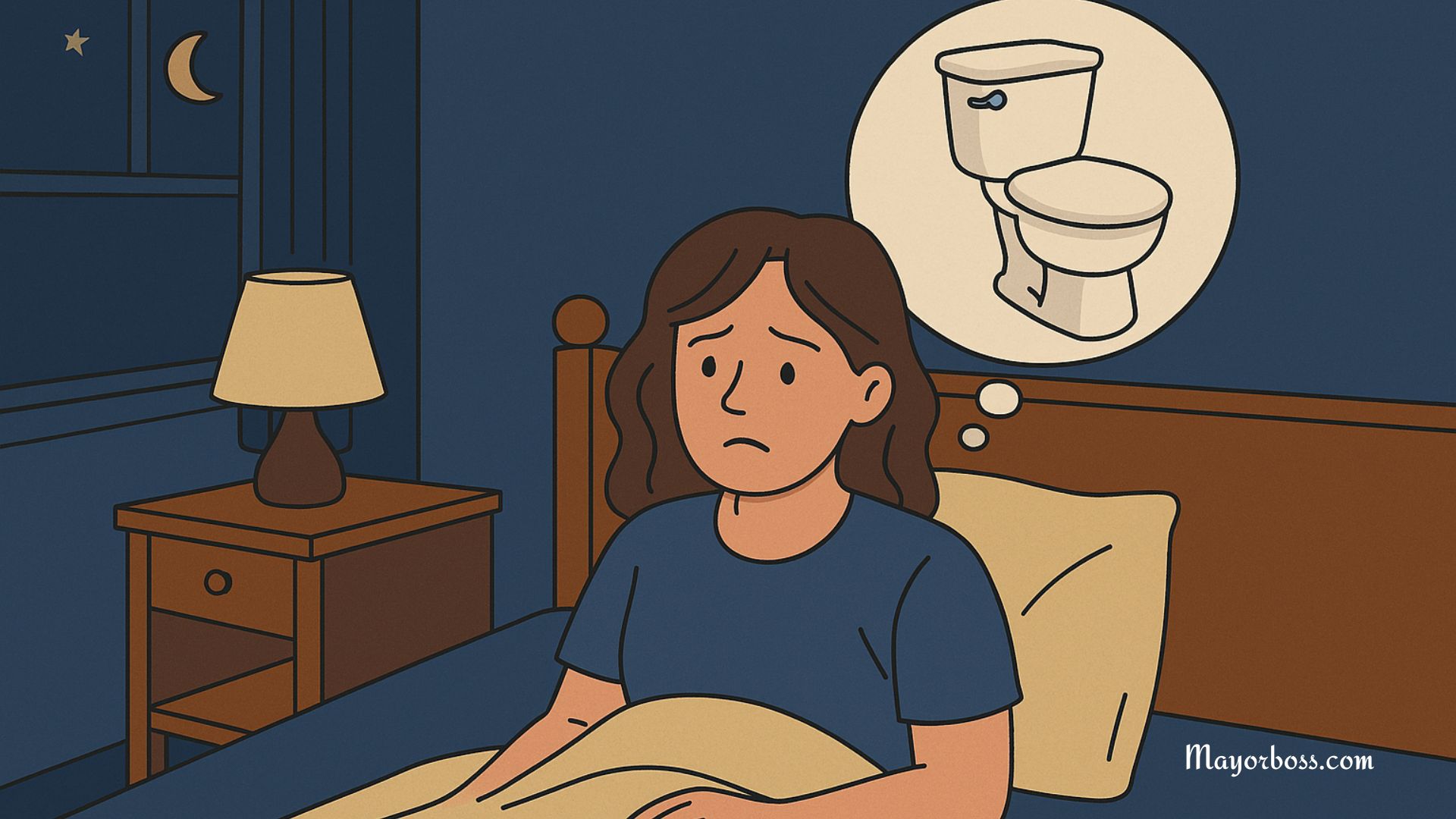Here’s Why You Keep Waking Up to Pee in the Middle of the Night
Waking up in the middle of the night to urinate—medically known as nocturia—is more than just an annoying habit. It often signals that something is off in your body. While it becomes more common with age, it’s not something you should ignore. If it’s disrupting your sleep regularly, it’s time to understand what might be causing it.

Your body produces more urine at night than it should
Under normal conditions, your body slows urine production while you sleep. This allows you to get several hours of uninterrupted rest. But when this rhythm is thrown off, you may produce excessive urine during the night. Doctors call this condition nocturnal polyuria.
Some common triggers include:
- High fluid intake late in the day
- Drinking caffeinated or alcoholic beverages before bed
- Certain medications, such as diuretics or calcium channel blockers
According to the Cleveland Clinic, this condition affects 1 in 3 people over the age of 30.
You may have a urinary tract or bladder problem
In some cases, nocturia stems from bladder or prostate conditions. For example:
- Overactive bladder (OAB): causes sudden urges to urinate, even at night.
- Bladder infections or urinary tract infections (UTIs): often cause discomfort and the need to urinate frequently.
- Benign prostatic hyperplasia (BPH): an enlarged prostate can press on the urethra, blocking urine flow and causing frequent nighttime trips to the bathroom.
Per Mayo Clinic, these problems often cause urgency and incomplete bladder emptying, which means you may feel the need to urinate even if your bladder isn’t full.
Sleep disorders may be waking you up first
In some cases, sleep disturbances are the real issue. The need to urinate only becomes noticeable after you’ve already been awakened. For instance, sleep apnea can repeatedly interrupt your rest, prompting you to get up—and once you’re awake, you may feel the urge to urinate.
The National Sleep Foundation reports that up to 84% of people with untreated obstructive sleep apnea also deal with nocturia. That’s because sleep apnea causes hormonal shifts that lead to increased urine production.
You could be dealing with diabetes or high blood sugar levels
Nocturia may also signal undiagnosed or poorly managed diabetes. When blood sugar levels are too high, your kidneys try to flush the excess glucose out through your urine. This leads to increased urination—during the day and at night.
According to the American Diabetes Association, this is often one of the earliest symptoms of both type 1 and type 2 diabetes. If you’re waking up often to urinate and also notice constant thirst or fatigue, speak to your doctor about getting tested.
Hormonal changes as you age can disrupt urine regulation
As you get older, your body undergoes hormonal shifts that affect how much urine you produce at night. In particular, levels of antidiuretic hormone (ADH) naturally decline. This hormone normally reduces nighttime urine output.
Lower ADH levels combined with reduced bladder capacity and other aging-related changes often explain why older adults experience nocturia more frequently. Still, that doesn’t mean it should be brushed off—especially if it interferes with your quality of life.
Certain heart or kidney conditions may play a role
Heart failure and chronic kidney disease can both lead to fluid buildup in the body during the day. When you lie down at night, your body redistributes that fluid, prompting your kidneys to produce more urine.
This is why people with these conditions often notice they pee more at night than during the day. The European Association of Urology experts explain that nocturia can be an early indicator of heart or kidney dysfunction—particularly in older adults.
Your medications may be contributing to nocturia
Some medications are directly linked to nighttime urination. Diuretics, commonly prescribed for high blood pressure or heart failure, are the most obvious culprits. If taken too late in the day, they can continue working well into the night.
Other drugs—like lithium, antidepressants, or certain sedatives—may also increase urine output or disrupt sleep. Talk with your doctor about when you take your medications and whether timing adjustments may help reduce symptoms.
Psychological stress and anxiety can increase nighttime bathroom visits
Stress and anxiety can trigger both insomnia and overactive bladder symptoms. If your mind is racing or your nervous system is on high alert, your bladder might be, too. Some psychologists suggest that chronic anxiety increases the sensitivity of the bladder, leading to more frequent nighttime urination.
Treating the underlying psychological issue—whether through therapy, stress reduction, or medication—can often ease nocturia in these cases.
When should you see your doctor?
If you wake up to urinate more than once every night on a regular basis, and it’s disrupting your sleep or energy levels, talk to your physician. That’s especially true if it started suddenly or if you also experience:
- Burning or pain with urination
- Blood in the urine
- Swelling in your legs or ankles
- Unexplained fatigue
- Increased thirst or appetite
These may point to an underlying health condition that needs evaluation.
